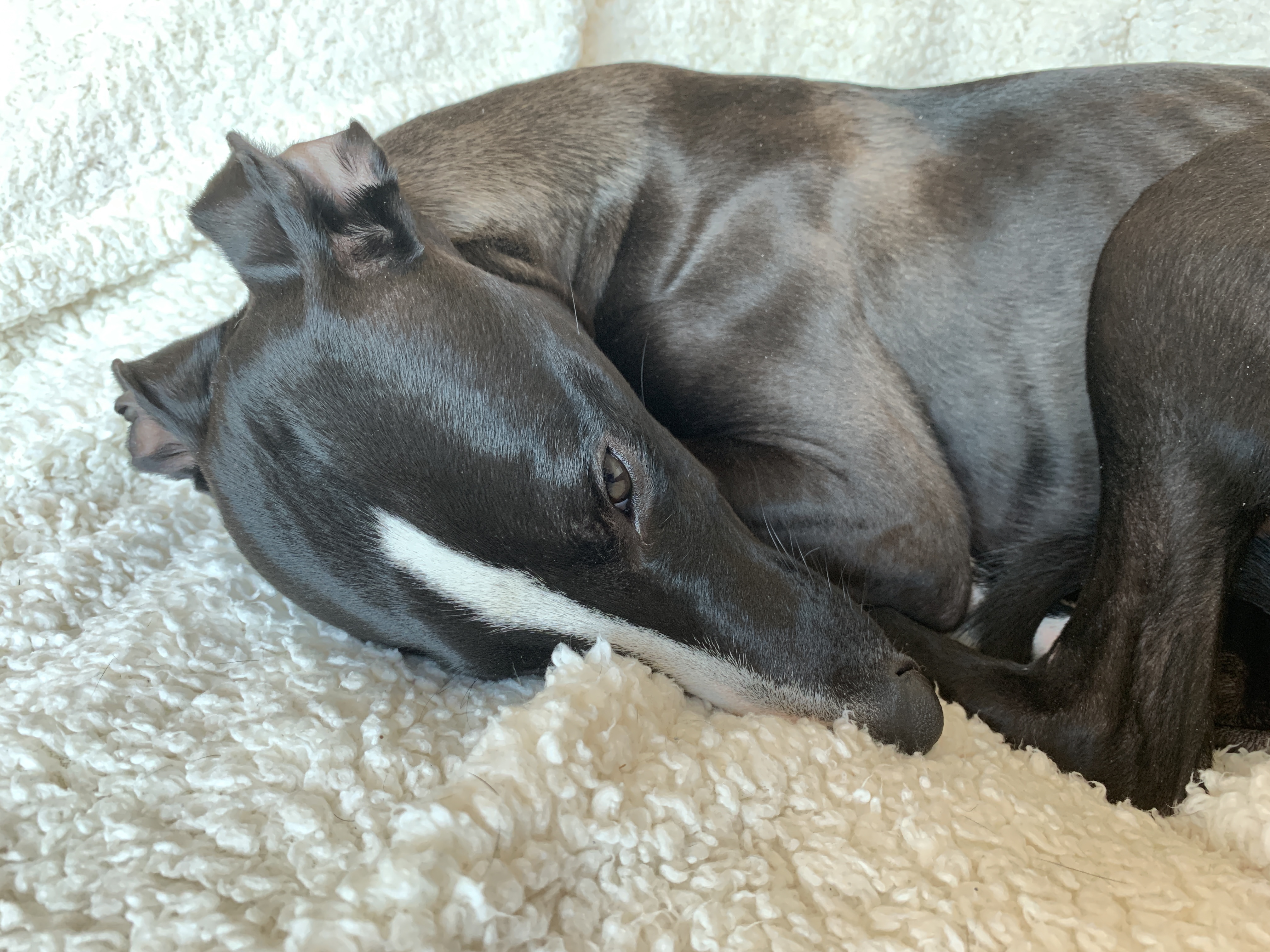
One of the joys of bringing up young animals is watching them play. Every morning Teio greets me with an affectionate nuzzle and within a few minutes he is searching for someone or something to play with. If Max, the senior collie who lives downstairs, is up and about, Teio will run down to engage in play, chasing the older dog around the small square of parched grass in our shared garden.
Witnessing the old collie grunting with pleasure and rolling about on his back and the bright-eyed young whippet delicately pointing his paw to keep the game going, I forget that I’m up an hour earlier than usual. I forget I haven’t had coffee yet. I’m awakened by the energy of their play and for a moment nothing else matters.
When dogs play they are truly in the moment. They aren’t wondering if they should be doing something else more important or getting on with the serious business of their life. In a young dog’s world, play is his life.
Over the past couple of weeks, I’ve been wondering about the place of play in my own life. I know that I feel happiest when I’ve spent time sharing a simple walk with family and friends with the dogs running through sunlit trees up ahead.
Even though I’m enjoying the moment, there’s also a part of me, though, that whispers: this can’t last, take it while you can. When I tune into the warning, my happiness continues, but as if through a perspex screen. I can see it, but I can’t touch it.
My young dog knows nothing of these conflicted feelings. He can’t feel two different feelings at once the way we can. Why are dogs happier than humans? Possibly because their lives are less complicated, but also because dogs are more generally affable then we are. Put it simply: they are friendlier.
The friendliness of dogs is, of course, one of the reasons we love them so much. The sight of a shining eye looking up into our face and pink healthy tongue lolling from a happy dog’s mouth is enough to melt the most miserable of souls.
I was touched by the comment of a young man on one of our outings to a local park this week. The young man looked to be in some sort of difficult or chaotic place, disheveled and anxious, but he stopped for a moment when Teio bounced up to him. Hearing that the young whippet was friendly, he crouched down and offered his fist for Teio to sniff. After a minute of friendly greeting the young man looked up. ‘He’s a nice dog – a good dog,’
The young man’s body language softened. ‘I’m trying to attract more good things in my life.’
‘Well, this morning you certainly have.’
We smiled at each other and I saw through the chaos to the place of worry and fear that I recognised like a familiar friend. We went our separate ways, but the young man’s words stayed with me.
We all want to attract more good in our lives. But so often when we find the good, we are afraid to fully take it. We are suspicious of goodness because it requires us to open our hearts and be grateful or glad or uplifted. When you’re used to being afraid or insecure, your own happiness can startle you as much as a threat.
It’s tragic that we are like this, and I wish it weren’t so. I wish we could be more like affable dogs, bounding across the social distance restrictions to playfully reunite. Of course, after months of social isolation many people will be pleased to see one another and there will be parties and barbecues and gatherings again.
But in those very social occasions there will be mixed feelings. There will be laughter and banter and there will be fear; there will be insecurity; there will be wondering what comes next; there will be questions: how to pick up the pieces, how to repair the damage, build the business, mend and start afresh.
This is how we are as human beings. We survive crisis, we come through disaster and chaos. We emerge shaken and changed and more vulnerable than we are perhaps aware. May we remember, too, that we also know what we need to help us on our way. A good dose of the good is good for us. And enough time to put our worries away for a while and remember how to play.

 youtu.be/F5K_tWumjSI
youtu.be/F5K_tWumjSI